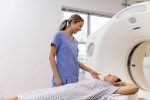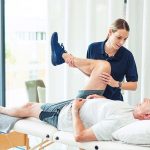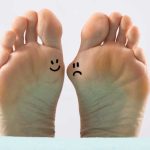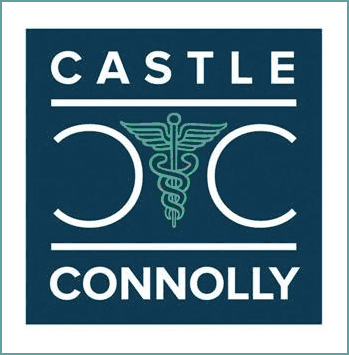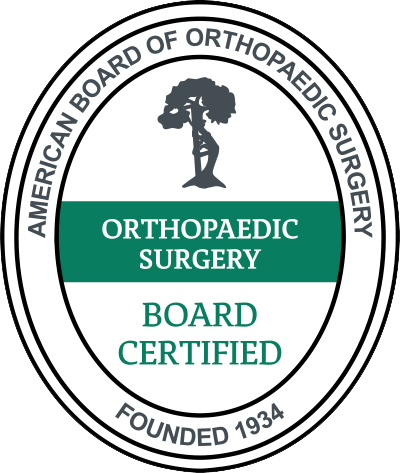Medically Reviewed by Dr. Abiola A. Atanda, M.D.
Key Takeaways
- Sneezing can trigger or worsen back pain by increasing pressure on spinal discs and nerves.
- Common causes include herniated discs, muscle strain, sciatica, or vertebral compression fractures.
- Proper posture and core engagement when sneezing can help protect your spine.
- Persistent or severe back pain after sneezing may indicate an underlying condition that requires medical evaluation.
You feel it coming — a sneeze is barreling down your sinuses. You expect that quick burst of relief, when suddenly a sharp pain shoots through your back. It is surprising, uncomfortable, and more common than you might think. If a simple sneeze has recently left you wincing, there is a reason for it and some practical steps you can take to help.
To understand why a sneeze can cause back pain, it helps to know what’s actually happening inside your body.
What Is a Sneeze and How Does It Impact My Body & Back?
A sneeze may feel like a simple reflex, but it’s actually a powerful, coordinated response involving your respiratory muscles, diaphragm, chest, and back. Sneezing is your body’s natural way of clearing irritants such as dust, pollen, or germs from your nasal passages. When something stimulates the nasal lining, your brain’s “sneeze center” triggers a rapid chain reaction that propels air — and any particles — out of your nose and mouth at speeds of up to 100 miles per hour.
During this reflex, nearly every muscle in your upper body contracts. Your chest tightens, your diaphragm compresses, and your back and core muscles tense to stabilize your posture and generate the force needed to expel air. This sudden contraction creates a surge of internal pressure — especially within the abdomen and spine.
For most people, that pressure release is harmless. But for those with existing back issues, such as a herniated disc, sciatica, or weak core muscles, that abrupt force can shift spinal alignment or irritate nerves, causing a sharp or radiating pain. Sneezing while sitting or slouched can amplify this stress, particularly in the lower back.
In short, a sneeze is not just a respiratory reflex — it’s a full-body event that briefly increases spinal pressure. Understanding this connection helps explain why proper posture, core strength, and awareness of body mechanics can make a real difference in preventing or reducing back pain when you sneeze.
What Can Cause Back Pain When You Sneeze
1. Herniated or Bulging Disc
Your spine is made up of vertebrae cushioned by discs that act as shock absorbers. A herniated disc occurs when the soft inner material pushes through a small tear in the outer layer and presses on nearby nerves. Even a simple sneeze can increase this pressure and spark a wave of pain.2
2. Muscle Strain or Spasms
Your back muscles stabilize your spine during nearly every movement. A forceful sneeze can cause these muscles to contract suddenly, leading to a strain or spasm, especially if they are already tight or fatigued from posture issues or overuse.3
3. Sciatica
The sciatic nerve, which runs from your lower back down each leg, can become irritated by a herniated disc or spinal misalignment. Sneezing can compress this nerve further, resulting in shooting pain or numbness that radiates down one or both legs.4
4. Vertebral Compression Fracture
For those with osteoporosis, even small jolts like a sneeze can cause a vertebral compression fracture (VCF). This occurs when a vertebra partially collapses, leading to sudden and often severe back pain. According to the American Association of Neurological Surgeons, VCFs are among the most common fractures in individuals with osteoporosis.5
As OrthoConnecticut spine specialist Dr. Justin Paul explains, “Understanding the specific cause of your pain is key,” says. “Even when pain feels minor or only happens with certain movements like sneezing, it can point to underlying disc or nerve issues that are best evaluated early.”
How to Protect Your Back When Sneezing
Sneezing might be unavoidable, but pain does not have to be. Try these strategies to help reduce your risk:
According to Healthline, sneezing can worsen symptoms in people with a herniated disc by adding extra pressure to the spinal column and nerves. To reduce this risk, it is important to maintain good posture when sneezing. Standing upright and leaning forward slightly while supporting your body with your hands can help distribute pressure more evenly and lower strain on the spine.1
- Stand tall: If you feel a sneeze coming, stand up straight rather than staying seated.6
- Lean forward slightly: Placing your hands on a table or countertop while sneezing helps distribute the force more evenly.1,6
- Maintain strong posture: Keep your shoulders back and avoid slouching when sitting or standing.
- Engage your core: A strong core provides natural support for your spine.
Use mindfulness: Gently brace your abdominal muscles when sneezing to reduce sudden strain.
Home Remedies That May Help
If back pain from sneezing lingers, simple self-care strategies can help ease discomfort:
Ice and heat: Apply an ice pack for the first few days, then switch to gentle heat to relax muscles.3
Over-the-counter pain relief: NSAIDs like ibuprofen can help reduce inflammation.
Gentle stretching: Incorporate light stretches to improve flexibility and mobility.7
Stay active: Gentle movement, such as walking, swimming, or yoga, helps increase circulation and promotes healing.8
Manage stress: Deep breathing or meditation can help reduce tension that contributes to muscle tightness.
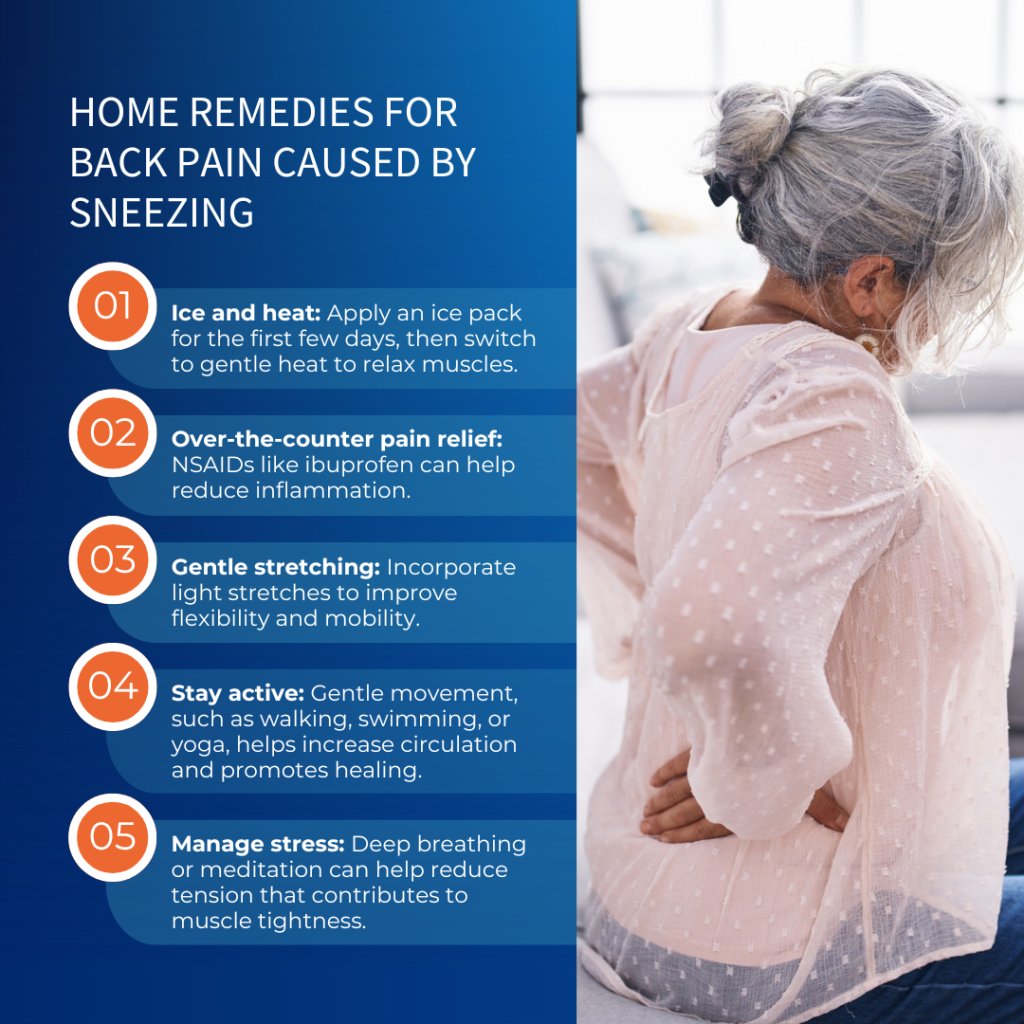
When to Seek Medical Care
Occasional back pain from a sneeze or sudden movement is often harmless and may resolve with rest and self-care. However, if your back pain lasts longer than a few weeks or interferes with your ability to sit, stand, walk, or perform daily activities, it’s important to seek professional evaluation. Persistent pain may be a sign of an underlying issue, such as a herniated disc, nerve compression, or spinal instability that requires medical attention.
You should contact a doctor immediately if you experience any of the following warning signs:
- Numbness or tingling in the legs, hips, or groin: These sensations may indicate nerve irritation or compression, such as from a herniated disc or spinal stenosis.
- Loss of bladder or bowel control: This can signal a serious condition known as cauda equina syndrome, a rare but urgent medical emergency. Cauda equina syndrome occurs when the bundle of nerves at the base of the spinal cord (called the cauda equina) becomes severely compressed, leading to loss of sensation and control in the lower body. Without immediate treatment (often surgical decompression), permanent nerve damage, paralysis, or loss of bladder and bowel function can occur.
- Severe or worsening pain: If your pain intensifies instead of improving, or becomes sharp, burning, or unrelenting, it may point to nerve damage or another structural problem.
- Pain radiating below the knee: Shooting pain down the leg, especially when accompanied by numbness or weakness, may be caused by sciatica or lumbar nerve compression.
- A history of osteoporosis or cancer: Individuals with osteoporosis are at higher risk for compression fractures, while those with a history of cancer should be evaluated to rule out spinal metastasis.
The OrthoConnecticut Approach to Back Pain
At OrthoConnecticut, our board-certified spine specialists understand that even something as simple as a sneeze can signal an underlying spinal condition. Our expert team offers advanced diagnostic tools and personalized treatment plans to relieve pain, restore mobility, and prevent future flare-ups.
Spine Physician Specialists
Robert L. Brady, M.D. — Spine Specialist | Surgeon (Norwalk, Westport)
Justin C. Paul, M.D., Ph.D. — Spine Specialist | Surgeon (Danbury, Southbury)
Abiola A. Atanda, M.D. — Spine Specialist | Surgeon (Danbury, New Milford, Southbury)
Physiatrists & Pain Management Physicians
Brian A. Bast, D.O. — Interventional Spine & Musculoskeletal Medicine, Pain Management (Darien, Norwalk, Westport)
Jesse T. Hochkeppel, M.D. — Interventional Pain Medicine Specialist (Danbury, New Milford, Southbury)
David S. Kloth, M.D. — Interventional Pain Medicine Specialist (Danbury)
“Our goal is to help every patient understand what’s causing their pain and find lasting relief,” says Dr. Abiola Atanda. “Even when symptoms start with something as simple as a sneeze, we take the time to identify the source and develop a plan that restores comfort and confidence.”
Whether you are dealing with a herniated disc, sciatica, or an unexpected back strain, OrthoConnecticut’s comprehensive spine care, from physical therapy and nonsurgical interventions to minimally invasive spine surgery, can help you get back to living comfortably.
A sneeze should not stop you in your tracks. If sneezing regularly causes back pain, it may be your body’s way of signaling an issue that needs expert care.
OrthoConnecticut’s spine specialists are here to help you understand the cause, find relief, and protect your spine for the long term.
Learn more or schedule a consultation today at myorthoct.com/request-appointment/.
References
- Healthline. “Why Does My Back Hurt When I Sneeze?” https://www.healthline.com
- Cleveland Clinic. “Herniated Disc.” https://my.clevelandclinic.org
- Harvard Health Publishing. “Treating Back Strain.” https://www.health.harvard.edu
- Mayo Clinic. “Sciatica.” https://www.mayoclinic.org
- American Association of Neurological Surgeons. “Vertebral Compression Fractures.” https://www.aans.org
- Spine Health. “Preventing Back Pain from Sneezing and Coughing.” https://www.spine-health.com
- Johns Hopkins Medicine. “Back Pain Relief: Stretching and Exercise.” https://www.hopkinsmedicine.org
- National Institute of Neurological Disorders and Stroke. “Low Back Pain Fact Sheet.” https://www.ninds.nih.gov












